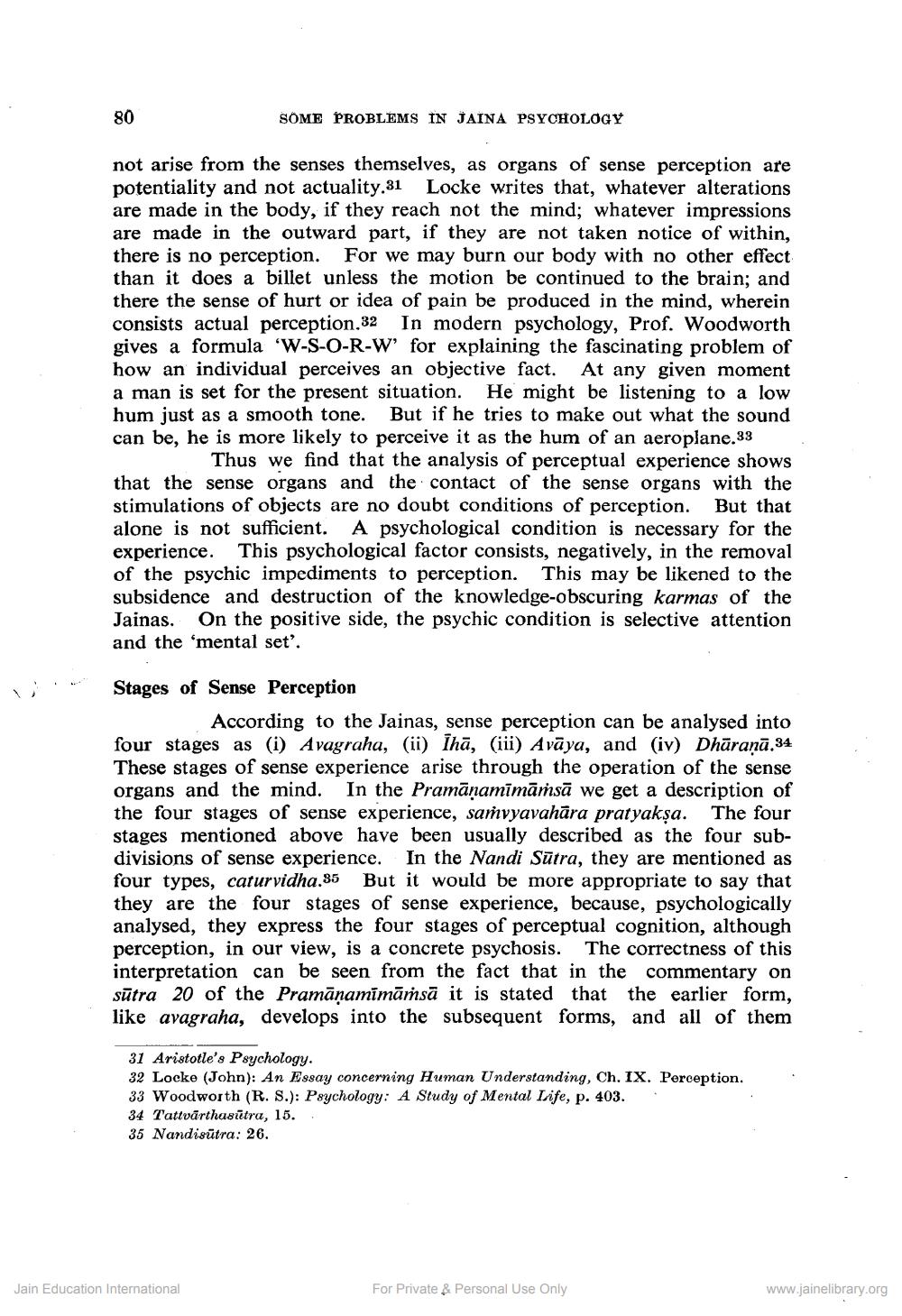________________
80
SOME PROBLEMS IN JAINA PSYCHOLOGY
not arise from the senses themselves, as organs of sense perception are potentiality and not actuality.31 Locke writes that, whatever alterations are made in the body, if they reach not the mind; whatever impressions are made in the outward part, if they are not taken notice of within, there is no perception. For we may burn our body with no other effect than it does a billet unless the motion be continued to the brain; and there the sense of hurt or idea of pain be produced in the mind, wherein consists actual perception.32 In modern psychology, Prof. Woodworth gives a formula 'W-S-O-R-W' for explaining the fascinating problem of how an individual perceives an objective fact. At any given moment a man is set for the present situation. He might be listening to a low hum just as a smooth tone. But if he tries to make out what the sound can be, he is more likely to perceive it as the hum of an aeroplane.33
Thus we find that the analysis of perceptual experience shows that the sense organs and the contact of the sense organs with the stimulations of objects are no doubt conditions of perception. But that alone is not sufficient. A psychological condition is necessary for the experience. This psychological factor consists, negatively, in the removal of the psychic impediments to perception. This may be likened to the subsidence and destruction of the knowledge-obscuring karmas of the Jainas. On the positive side, the psychic condition is selective attention and the 'mental set'.
Stages of Sense Perception
According to the Jainas, sense perception can be analysed into four stages as (i) Avagraha, (ii) Ihā, (iii) Avāya, and (iv) Dhūraņā.34 These stages of sense experience arise through the operation of the sense organs and the mind. In the Pramānamīmāṁsā we get a description of the four stages of sense experience, samvyavahāra pratyakşa. The four stages mentioned above have been usually described as the four subdivisions of sense experience. In the Nandi Sūtra, they are mentioned as four types, caturvidha.35 But it would be more appropriate to say that they are the four stages of sense experience, because, psychologically analysed, they express the four stages of perceptual cognition, although perception, in our view, is a concrete psychosis. The correctness of this interpretation can be seen from the fact that in the commentary on sūtra 20 of the Pramānamimāṁsā it is stated that the earlier form, like avagraha, develops into the subsequent forms, and all of them
31 Aristotle's Psychology. 32 Locke (John): An Essay concerning Human Understanding, Ch. IX. Perception. 33 Woodworth (R. S.): Psychology: A Study of Mental Life, p. 403. 34 Tattvārthasitra, 15. 35 Nandisutra: 26.
Jain Education International
For Private & Personal Use Only
www.jainelibrary.org




